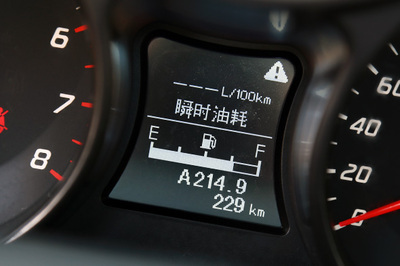Fuel consumption is one of the most concerned car parameters for the majority of vehicle owners. The level of fuel consumption on the one hand reflects the fuel economy performance of the engine, and on the other hand, it also relates to the economical efficiency of using fuel. A fuel-efficient car can save a lot of money for the owner. When measuring the fuel-efficient performance of the car, we often use the fuel consumption of 100 kilometers as a standard. But how to calculate the fuel consumption of 100 kilometers? The following Xiao Bian will give you a brief introduction:

Before introducing the 100km fuel consumption of a car, we must first understand the basic concept of 100km fuel consumption. Many vehicle owners know that there are two kinds of fuel consumption per 100km that we often refer to. One is the comprehensive 100km fuel consumption of the Ministry of Industry and Information and the 100km fuel consumption we actually measure. The two data are different, and the actual measured value is usually greater than the comprehensive 100 km fuel consumption of the Ministry of Industry and Information Technology.
Simply put, the actual fuel consumption per 100 km of a car is the amount of fuel consumed by the car when it is used for 100 km in actual use. This data may vary according to the driver’s driving habits or driving conditions. Because different driving methods directly affect the data on fuel consumption for a hundred kilometers of a car. For individuals, the actual 100 km fuel consumption is often the most accurate. The comprehensive fuel consumption per 100 kilometers of the Ministry of Industry and Information Technology is the fuel consumption of an ideal vehicle. For the same vehicle model, the fuel consumption under ideal conditions is basically the same. Although this value is not accurate, but there is a certain reference value, because this value abandons the driver's driving habits and the difference in driving conditions caused by the error.
From the above, we can see that the comprehensive fuel consumption per 100 kilometers of the Ministry of Industry and Information Technology is based on the same driving method, and travels at a constant speed of 100 kilometers. The consumption of fuel is the fuel consumption of the Ministry of Industry and Information Technology. This value has only a certain reference value, and the specific fuel consumption has its own measurement.
The actual 100 km fuel consumption test method is as follows:
Example: An 8-segment sewer truck travels 600 kilometers and consumes 50 liters of fuel. The actual fuel consumption per 100 kilometers of the sewage sewer truck is as follows: X/100=50/600, and the value of this x is 8.33. That is, the actual 100 km fuel consumption of this car is 8.33 liters.
The actual 100km fuel consumption can be measured several times and then averaged. This is more accurate. The above is a brief introduction of Xiaobian's fuel consumption to 100km.
brass valves can handle the toughest jobs, under the worst conditions. Brass valves are known for various qualitative features such as adaptability and flawless performance.
JKLONG brass valves are produced in modern factories used exclusively for valve manufacturing. Each phase of the manufacturing process, from selection of raw materials to casting, forging, machining, assembly and testing, has been improved with automated production facilities and unparalleled production technology. Standardization and automation yield JKLONG brass valves of superior quality and higher uniformity at competitive prices supported by incomparably prompt delivery.
Brass Valve,Forged Brass Valve,Brass Angle Valve,Brass Gate Valve
Ningbo Jiekelong Precision Manufacturing Co., Ltd. , http://www.jklvalve.com